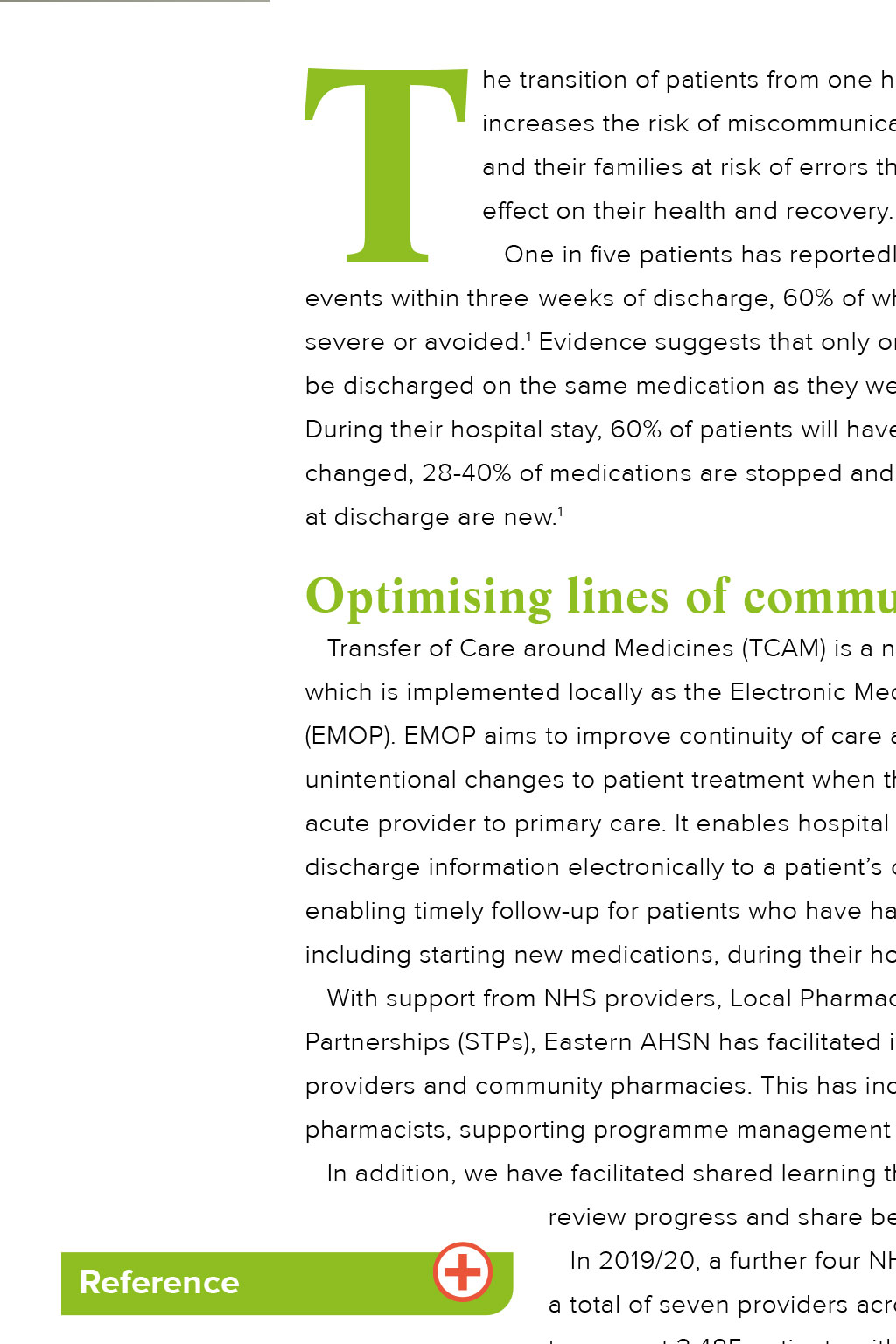














Project update: EMOP Enabling continuity of care across the system More than 3,400 patients supported through community pharmacy programme EMOP The transition of patients from one healthcare setting to another increases the risk of miscommunication leaving patients and their families at risk of errors that can have a detrimental effect on their health and recovery. One in five patients has reportedly experienced adverse events within three weeks of discharge, 60% of which could have been less severe or avoided.1 Evidence suggests that only one in 10 elderly patients will be discharged on the same medication as they were admitted to hospital on. During their hospital stay, 60% of patients will have three or more medicines changed, 28-40% of medications are stopped and 45% of medicines prescribed at discharge are new.1 Optimising lines of communication Transfer of Care around Medicines (TCAM) is a national AHSN programme, which is implemented locally as the Electronic Medicines Optimisation Pathway (EMOP). EMOP aims to improve continuity of care and reduce the risk of unintentional changes to patient treatment when they are discharged from an acute provider to primary care. It enables hospital pharmacy teams to send discharge information electronically to a patients community pharmacist, EMOP in action A female in her mid-70s was referred to her chosen community pharmacy on discharge from hospital. Upon comparing the discharge information with the repeat prescription, the pharmacy noted that the patients dose of allopurinol (a medicine often used to treat gout) had been reduced due to reduced kidney function. The pharmacist contacted the GP and asked for a repeat prescription with the correct dose, to avoid the patient taking a potentially harmful dose. enabling timely follow-up for patients who have had medication changes, including starting new medications, during their hospital stay. With support from NHS providers, Local Pharmaceutical Committees (LPCs), and Sustainability and Transformation Partnerships (STPs), Eastern AHSN has facilitated implementation of technology and supported pathway change in NHS providers and community pharmacies. This has included funding licence costs, helping to engage and train community pharmacists, supporting programme management and communications, and ongoing monitoring and data analysis. In addition, we have facilitated shared learning through EMOP steering groups, bringing together all stakeholders to review progress and share best practice. References Nazar. H., et al., 2015. A systematic review of the role of community pharmacies in improving the transition from secondary to primary care. British journal of clinical pharmacology [online]. 80(5), 936 948. Viewed online 29th May 2020. Available from https://doi.org/10.1111/bcp.12718 1 Share this article In 2019/20, a further four NHS providers launched the EMOP programme in their hospitals, making a total of seven providers across eight sites. The programme has enabled community pharmacists to support 3,485 patients with their prescriptions after a hospital stay during this period, ensuring they take their medication safely. We have met our target of 70% of acute providers adopting the innovation, with active plans for another two to come online in the remainder of 2020, through which we will continue to support and share best practice. Driving behaviour change Rolling out tools across multiple sites can be complicated. We can help you find innovations to meet your healthcare challenges. EasternAHSN.org Read more about the national AHSN Network programmes we have implemented here